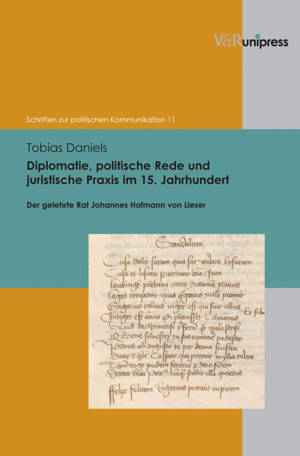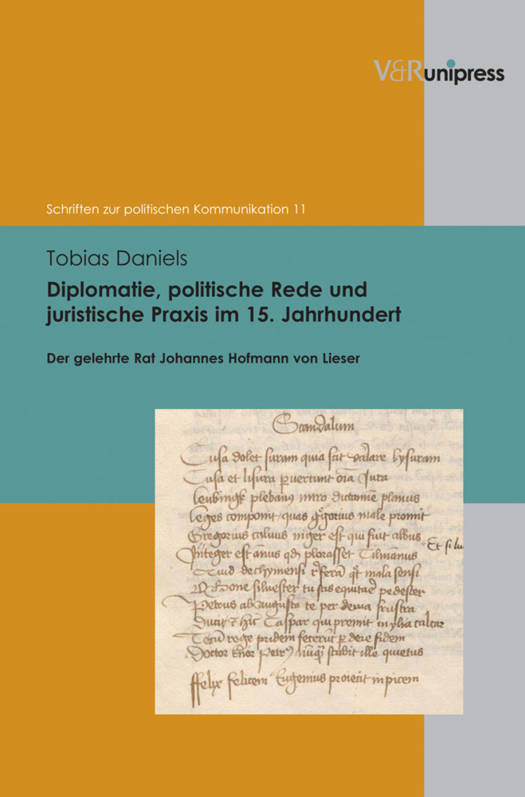
Bedankt voor het vertrouwen het afgelopen jaar! Om jou te bedanken bieden we GRATIS verzending (in België) aan op alles gedurende de hele maand januari.
- Afhalen na 1 uur in een winkel met voorraad
- In januari gratis thuislevering in België
- Ruim aanbod met 7 miljoen producten
Bedankt voor het vertrouwen het afgelopen jaar! Om jou te bedanken bieden we GRATIS verzending (in België) aan op alles gedurende de hele maand januari.
- Afhalen na 1 uur in een winkel met voorraad
- In januari gratis thuislevering in België
- Ruim aanbod met 7 miljoen producten
Zoeken
Diplomatie, Politische Rede Und Juristische PRAXIS Im 15. Jahrhundert
Der Gelehrte Rat Johannes Hofmann Von Lieser
Tobias Daniels
€ 177,45
+ 354 punten
Omschrijving
This book deals with the life and work of the learned counsellor Johannes Hofmann von Lieser (Lysura) (a 1459), a close friend of Nicholas of Cusa, known for the political verse "Cusa et Lysura pervertunt omnia iura". The thesis is examining principally three topics: (1) First, the diplomatic career of Lieser, with a focus on his political role in the German politics towards the Council of Basle (1431-1447) and in the so called "Reichsreform" in the 1450s, and third on Liesers engagement as a professor of Canon Law at the University of Louvain from 1456 to 1458. (2) The second part analyses Liesers political speeches at the imperial diets of Regensburg and Frankfurt am Main (1454). Thematically, the analysis regards chiefly the "Reichsreform", but also the history of the Teutonic Order. Methodologically, two different aims of political speech are juxtaposed: on the one hand the rhetorical approach of German learned counsellors, on the other hand the humanistic one, represented by Enea Silvio Piccolomini, who revised one of Liesers speeches. Furthermore, it is shown that the diffusion of political texts in the fifteenth century depended - not exclusively, but also - on their applicability in oratory, as learned counsellors worked with these texts as professional orators. (3) The third part is dedicated to Liesers up to now completely unknown juridical work. Several "consilia" and a "repetitio" are analysed in order to show how Lieser worked as a jurist and how he the profile of learned counsellors as jurists can contribute to a better understanding of them as politicians.
Specificaties
Betrokkenen
- Auteur(s):
- Uitgeverij:
Inhoud
- Aantal bladzijden:
- 581
- Taal:
- Duits
- Reeks:
- Reeksnummer:
- nr. 11
Eigenschappen
- Productcode (EAN):
- 9783847100928
- Verschijningsdatum:
- 13/05/2013
- Uitvoering:
- Hardcover
- Formaat:
- Genaaid
- Afmetingen:
- 168 mm x 240 mm
- Gewicht:
- 1105 g

Alleen bij Standaard Boekhandel
+ 354 punten op je klantenkaart van Standaard Boekhandel
Beoordelingen
We publiceren alleen reviews die voldoen aan de voorwaarden voor reviews. Bekijk onze voorwaarden voor reviews.









